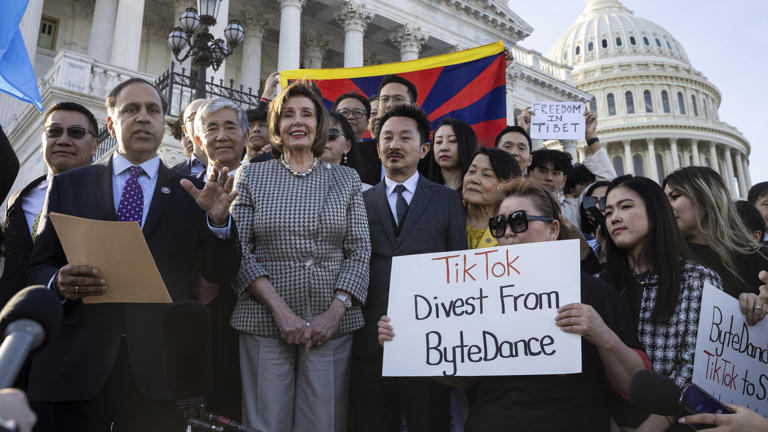Prominent internet platforms like Facebook, Google, and X (formerly Twitter) have faced increased government scrutiny in recent years due to concerns ranging from their impact on users’ mental health to their role in the dissemination of misinformation. Congressional hearings have forced executives of these companies to defend their practices and justify their existence, despite some lawmakers’ apparent lack of understanding of these platforms.
Late last week, Congress took steps to translate its scrutiny into action by passing a bipartisan bill requiring TikTok’s China-based parent company, ByteDance, to divest the app within 165 days or face a ban in the United States. The bill’s fate now rests with the Senate and President Biden. TikTok gained widespread attention during the COVID-19 pandemic, offering a platform for users to connect through short-form videos. However, the potential ban threatens to disrupt its popularity in the United States.
While social media platforms frequently come and go, TikTok’s potential demise due to congressional intervention sets a precedent. Unlike other platforms whose decline is market-driven, TikTok faces legislative action at the height of its popularity. This situation draws parallels to antitrust cases where regulators intervene to prevent monopolistic dominance or illegal competition practices.
In the case of TikTok, Congress’s concern centers on preventing spying by the Chinese government through the app. House Speaker Mike Johnson emphasized that China poses a significant geopolitical threat to the United States and that TikTok’s data collection enables Chinese government surveillance and manipulation of Americans. While similar concerns exist for other social media companies, TikTok’s Chinese ownership raises unique national security implications.
Ultimately, the potential ban on TikTok extends beyond the app itself, reflecting broader concerns about national security and privacy in the digital age.
The latest move to force TikTok’s parent company, ByteDance, to divest the app within the United States is just one aspect of the broader trade and technology conflict between the U.S. and China. This tension began in 2018 when former President Donald Trump initiated tariffs on Chinese imports, escalating into what is often referred to as a “trade war.” Trump’s administration targeted specific companies like Huawei, banning its operations in the U.S. due to concerns about national security and Chinese access to U.S. telecommunications networks.
Despite a shift in administration, President Biden’s approach to the trade war has shown continuity with Trump’s policies, particularly regarding restrictions on China’s access to advanced semiconductor technology. As a result, trade between the U.S. and China, which reached record levels in 2022, has seen a substantial decline in 2023. The consequences of this economic conflict include reduced opportunities for Chinese students to study in the U.S., decreased export volumes for U.S. producers, and increased costs for U.S. consumers.
However, the U.S.-China trade war is just one aspect of a broader geopolitical competition between the two superpowers. Beyond trade disputes, tensions extend to areas such as Taiwan, China’s military buildup, economic influence, and support for Russia amidst Western sanctions. The prevailing sentiment in Washington is that China seeks global power on its terms, leading to increased scrutiny and intervention in areas like technology and trade.
The TikTok saga illustrates the interconnectedness of the global economy with geopolitics. What began as a popular social media platform has become entangled in the geopolitical rivalry between the U.S. and China. The app’s growing popularity, coupled with its Chinese ownership, has made it a target for political intervention, highlighting the influence of great power competition on international business operations.
